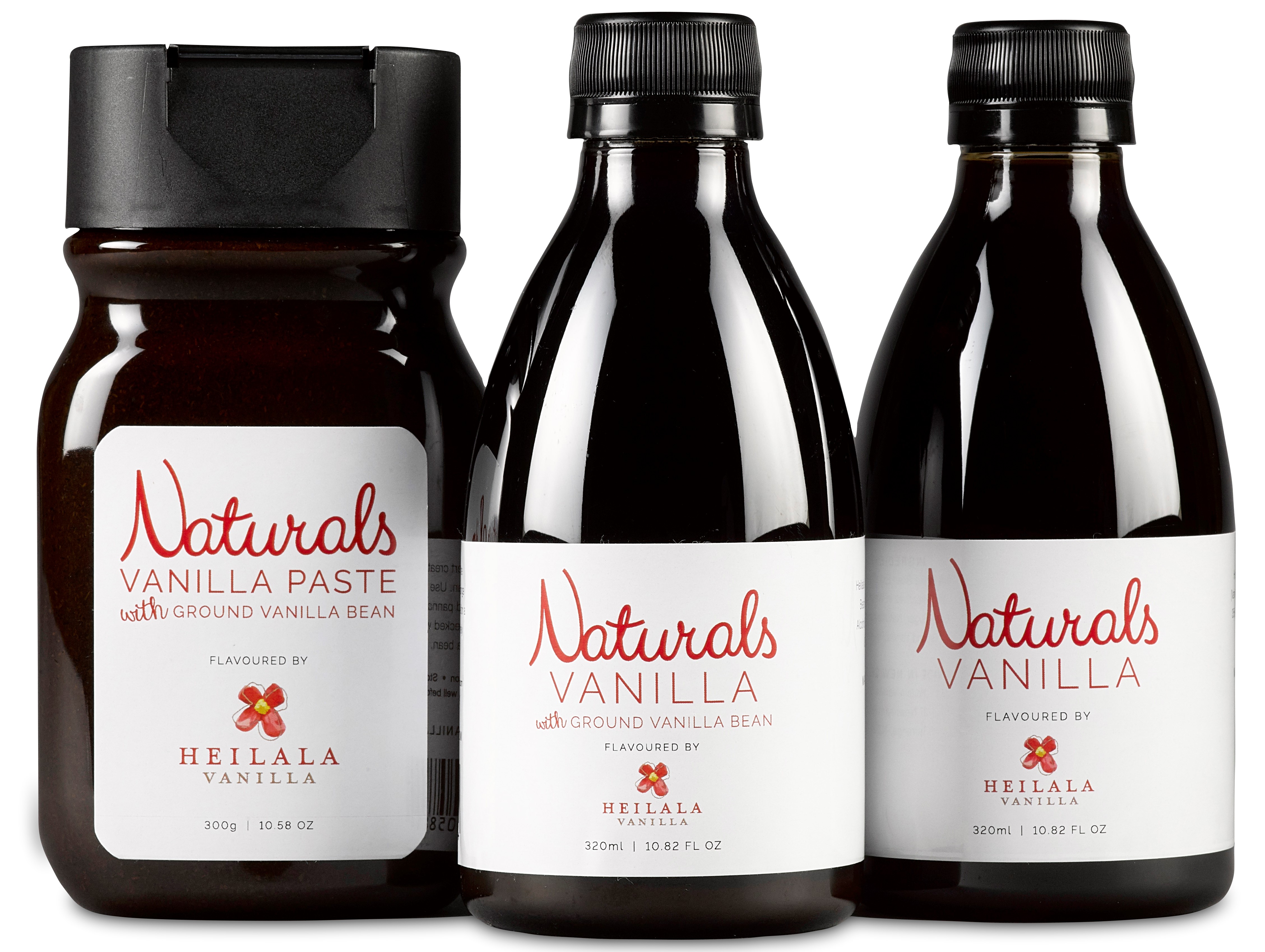Soaring prices worldwide for vanilla beans have prompted New Zealand vanilla grower and manufacturer, Heilala Vanilla, to launch a new product to shield its customers from market volatility.
For the second year in a row, international prices have skyrocketed as demand outstrips supply. Spice traders predict the current market turmoil will continue into 2018.
Fortunately for New Zealand vanilla lovers, Tauranga-based Heilala Vanilla sources most of its vanilla beans from growers throughout the Kingdom of Tonga. Heilala is also sourcing vanilla beans from a sustainable supply partner in Uganda to use in its manufactured product range.
Recent events surrounding the global vanilla market prompted Heilala Vanilla to develop a new Naturals product range to protect buyers when international supplies are affected by events such as the huge storm that hit Madagascar earlier this year. Cyclone Enawo damaged around 30 percent of the island’s vanilla crops. This significantly reduced global supplies as Madagascar produces 80 to 85 percent of the world’s vanilla beans. Consequently, vanilla prices skyrocketed to over $US700 a kilogram.
Heilala Vanilla’s CEO Jennifer Boggiss says developing the new Naturals product range was a strategic decision to protect Kiwi customers from supply shortages and price volatility. The Naturals range blends pure vanilla extract with natural, plant based, vanilla flavour, producing a flavour similar to its 100 percent pure vanilla product range.
“We have recognised that we will continually be faced with external forces which are out of our control,” she says. “The Naturals range will allow customers to continue using a high-quality vanilla throughout this crisis, and into the future.”
She adds that other factors affecting supply are the unsustainable harvesting methods in Madagascar and elsewhere that have decreased the quality of vanilla beans. Green vanilla beans near roads or populated areas have been harvested as immature beans to reduce the risk of theft. The 2017 Madagascar crop is likely to be the worst quality crop delivered to the market in decades.
“We believe the quick curing of green vanilla is a practice that has contributed to the current state of the market,” says Jennifer. “It has an extremely negative social impact on the vanilla trade as ethical and sustainable procurement practices have been abandoned in favour of any vanilla at any price.
“The current high prices can be partially mitigated with the Naturals blends which are at a more sustainable price,” she says. “These products are for those who wish to reduce costs and move away from the 100 percent pure vanilla products, which is currently experiencing volatility, if not permanently, at least temporarily.”
She says the company is keeping a close eye on the global vanilla market and will quickly adjust pricing to pass on any savings on to customers.




